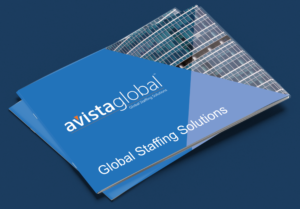What Exactly is Market Research Outsourcing?
Market research outsourcing refers to the practice of delegating the task of gathering, analyzing, and interpreting market-related data and insights to external third-party service providers or agencies.
Why Should Organizations Consider Market Research Outsourcing?
To leverage specialized expertise, achieve cost savings, and access timely and unbiased insights. Outsourcing allows businesses to focus on core activities, adapt to changing research needs, and make informed strategic decisions based on data-driven analysis, all while benefiting from advanced tools and technology.
Benefits of Outsourced Market Research
✓ Expertise and Specialization
Outsourcing market research allows you to tap into the expertise of specialized research firms or professionals who are experienced in designing, conducting, and analyzing market research studies. They have a deep understanding of research methodologies, data collection techniques, and industry best practices.
✓ Cost-Efficiency
Conducting in-house market research can be costly, requiring investments in hiring and training research personnel, acquiring necessary tools and software, and managing research projects. Outsourcing can offer a more cost-effective solution, as you only pay for the specific research services you need.
✓ Time Savings
Outsourcing frees up your internal resources to focus on core business activities. Market research projects can be time-consuming, and outsourcing allows your team to allocate their time and efforts more strategically.
✓ Access to Advanced Tools and Technologies
Market research firms often have access to advanced research tools, software, and technologies that may not be readily available in-house. This can lead to more accurate data collection, analysis, and reporting.
✓ Unbiased and Objective Insights
An external research provider can offer unbiased and objective perspectives, as they do not have a vested interest in the outcome of the research. This can lead to more credible and reliable insights.
✓ Scalability
Outsourcing market research enables you to scale your research efforts up or down based on your needs. You can engage external resources for specific projects or on an ongoing basis, allowing for greater flexibility.
✓ Global Reach
If your business operates in multiple regions or countries, outsourcing market research can provide access to experts with knowledge of local markets, cultural nuances, and regulatory environments.
✓ Reduced Internal Workload
Market research involves various stages, from study design and data collection to analysis and reporting. Outsourcing these tasks can relieve your internal team of a heavy workload, enabling them to focus on strategic decision-making.
✓ Faster Results
External research firms are often equipped to complete projects more quickly due to their expertise and streamlined processes. This can help you obtain timely insights to inform your business decisions.
✓ Risk Mitigation
Outsourcing market research can help mitigate the risks associated with potential biases, errors, or misinterpretation of data that may occur when conducting research internally.
✓ Customization
Experienced market research firms can tailor their approach to meet your specific research objectives, ensuring that you receive relevant and actionable insights.
✓ Confidentiality
Reputable research partners prioritize data security and confidentiality, which is crucial when handling sensitive business information.
Request Information Today!
Drawbacks of Outsourcing Market Research
✓ Loss of Control
When you outsource market research, you might have less control over the research process, methodologies, and data collection techniques. This could lead to concerns about the accuracy and relevance of the insights generated.
✓ Quality Concerns
Depending on the research provider's expertise and commitment to quality, there may be concerns about the accuracy and reliability of the research results. Poorly executed research could lead to flawed insights and misguided business decisions.
✓ Communication Challenges
Effective communication is crucial in market research to ensure that the research objectives, methodologies, and expectations are clearly understood. Communication challenges, such as language barriers or time zone differences, could hinder the research process.
✓ Lack of Industry Knowledge
Outsourced research providers might lack in-depth knowledge of your industry, products, and customers. This could result in insights that are not fully aligned with your business goals and objectives.
✓ Limited Customization
While outsourcing offers customization options, you may still encounter limitations in tailoring the research to your specific needs. Research providers might have predefined methodologies that may not perfectly align with your unique requirements.
✓ Data Security and Confidentiality
Sharing sensitive business information with an external research provider could raise concerns about data security and confidentiality. Ensuring that proper safeguards are in place to protect your data is essential.
✓ Long-Term Dependency
Over time, businesses might become overly reliant on external research providers for their insights, which could lead to a reduced ability to develop internal research capabilities.
✓ Hidden Costs
While outsourcing may seem cost-effective initially, there could be hidden costs associated with changes in project scope, revisions, or unexpected delays. It's important to have a clear understanding of the pricing structure and potential additional costs.
✓ Risk of Misalignment
Outsourced research might not always fully align with your company's culture, values, and strategic direction. This misalignment could impact the relevance of the insights and their applicability to your business decisions.
✓ Limited Access to Raw Data
Depending on the terms of the outsourcing agreement, you might have limited access to the raw data collected during the research process. This could hinder your ability to conduct deeper analyses or verify the findings independently.
✓ Loss of Institutional Knowledge
When research is conducted externally, your internal team might miss out on the learning experience and insights gained from directly participating in the research process.
✓ Difficulty in Course Correction
If you discover issues with the research midway through the project, making course corrections and adjustments could be more challenging when working with an external provider.

Tips for Outsourcing Market Research

✓ Define Clear Objectives
Clearly articulate your research objectives, goals, and expected outcomes. A well-defined scope will help potential research partners understand your needs and propose relevant solutions.
✓ Research Partner Selection
Take the time to research and evaluate potential market research providers. Look for firms with a proven track record, relevant industry expertise, and a strong reputation for delivering quality results.
✓ Request Proposals
Request detailed proposals from shortlisted research firms. Evaluate their proposed methodologies, approach, timelines, and costs. Compare multiple proposals to make an informed decision.
✓ Check References
Ask for references from previous clients to get insights into the research provider's performance, communication, and ability to meet deadlines. This step can help you gauge their reliability and professionalism.
✓ Communication is Key
Establish open and transparent communication channels with your chosen research partner. Clearly convey your expectations, provide background information about your business, and address any concerns or questions.
✓ Collaborative Approach
Treat the research provider as an extension of your team. Foster a collaborative relationship where you work together to refine research methodologies, validate findings, and adjust the approach if needed.
✓ Protect Data Security
Ensure that the research partner has robust data security and confidentiality measures in place. Discuss how data will be handled, stored, and protected throughout the research process.
✓ Detailed Project Plan
Create a detailed project plan that outlines key milestones, deadlines, and deliverables. This plan will help both parties stay aligned and accountable throughout the research project.
✓ Regular Updates and Reporting
Request regular updates on the progress of the research. Establish a reporting schedule to receive interim findings, insights, and any potential issues that need to be addressed.
✓ Quality Assurance
Discuss quality control measures with the research provider. This could include procedures for data validation, accuracy checks, and peer review to ensure the reliability of the research results.
✓ Flexibility for Course Correction
Build flexibility into the project plan to accommodate changes or adjustments that might be necessary as the research progresses. This could include additional research questions, altered methodologies, or changes in scope.
✓ Feedback and Review
Provide constructive feedback on interim findings and deliverables. Regularly review and assess the work to ensure it aligns with your expectations and objectives.
✓ Independent Verification
If feasible, consider involving internal resources to independently verify or validate certain aspects of the research findings. This can provide an added layer of assurance.
✓ Budget Management
Clearly define the budget and payment terms upfront. Monitor expenses throughout the project to ensure they remain within the agreed-upon budget.
✓ Knowledge Transfer
Once the research is completed, ensure that there is a knowledge transfer process in place. Capture key insights, recommendations, and learnings from the research to inform future decision-making.
Strategies for Effective Outsourcing Market Research
Choose the Right Partner
Select a research firm or professional with expertise in your industry and relevant research methodologies. Review their track record, references, and reputation to ensure they are a good fit for your project.
Establish Open Communication
Maintain open and transparent communication with the research partner. Regularly discuss expectations, project updates, challenges, and any adjustments needed.
Collaborate on Methodology
Work together to design a research methodology that aligns with your objectives. Share insights about your industry and customers to enhance the relevance and accuracy of the research.
Detailed Project Plan
Develop a comprehensive project plan with key milestones, deadlines, and deliverables. This plan should outline the research process from start to finish.
Allocate Resources
Assign a dedicated internal contact person to liaise with the research partner. This person should be knowledgeable about your business and available to provide timely input.
Protect Data Security
Ensure data security and confidentiality by outlining data handling protocols and signing appropriate agreements. Verify that the research partner complies with data protection regulations.
Monitor Progress
Regularly review the progress of the research against the project plan. Address any issues promptly and discuss potential course corrections if necessary.
Quality Assurance
Implement quality control measures, such as data validation and accuracy checks, to ensure the research results meet your standards.
Feedback Loop
Provide feedback at various stages of the research process. Regularly review and validate interim findings to ensure they align with your expectations.
Flexibility for Adjustments
Build flexibility into the project plan to accommodate changes based on emerging insights or unexpected developments.
Reporting and Insights
Discuss the format and frequency of reporting. Ensure that the research provider presents findings in a clear, actionable manner.
Budget Management
Clearly outline the budget, payment terms, and potential additional costs. Regularly review expenses to ensure they align with the agreed-upon budget.
Copyright © 2024 Avista Global, LLC. All rights reserved. Privacy Policy Terms of Use

